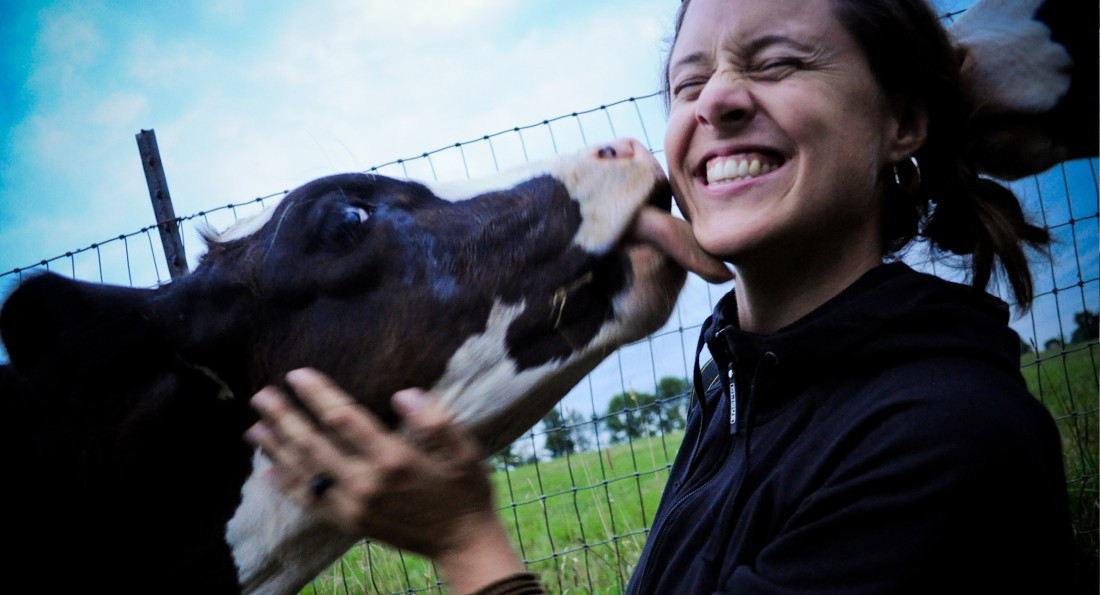Our backyards are full of invisible animals
Photojournalist to present on animal cruelty at Park Theatre
We’ve all seen the disturbing videos that show animals being abused by their handlers – but what most people don’t realize is how close to home those incidents are.
To inform the public of what goes on behind closed doors and what they can do to help, the Winnipeg Humane Society (WHS) is hosting a presentation by Jo-Anne McArthur, animal activist and photojournalist based out of Toronto. The talk is part of the WHS’ Farm Animal Compassion Committee’s speakers series.
“I specifically focus on animals I refer to as invisible animals. These are the ones we raise and consume by the billions but we don’t see,” McArthur says. “It goes beyond factory farming. It goes to fur farming, animals used in labs, entertainment, bear bile farms.”
McArthur says that unlike pets and wildlife, most people are not expected to care about the welfare of these hidden animals. Consequently, many are abused physically, as well as mentally. And unless you know where to look, these operations are well hidden.
“There are slaughterhouses in the middle of Toronto,” she said. Her work has led her on slaughterhouse tours, and she has snuck into facilities and bought tickets to rodeos and bull fights.
“This happens worldwide,” she says.
Brittany Semeniuk, coordinator of the event, says that every day in Manitoba, approximately 12,000 pigs are slaughtered.
“Our main agricultural income for our province is the pork industry,” she says.
Most of that pork comes from large factory farms that keep animals separated, in tiny cages, and on unnatural diets of grain and corn.
“These are all very serious things that are happening,” she says. Chickens, she notes, aren’t able to behave as they would naturally when they are kept in battery cages.
“Research shows that they’re supposed to spend 80 to 90 per cent of their time foraging, but when they’re stuck in cages, they can’t,” she says.
“The biggest way to make a difference is simply that if you’re not eating these products, you’re not supporting these industries,” she adds. “But a lot of people can’t simply give up meat or eggs or dairy products overnight … it’s more about supporting the small-scale local farms, where they can give their animals a much higher quality of life.”
Semeniuk says purchasing from these kinds of farms is much better than picking up your meat and dairy products from the grocery store.
“Luckily, people care more and want to see and know so we can change,” McArthur says. “It’s a common idea that people struggle with, that they’re shown and think, ‘oh this doesn’t happen in my country,’ and that’s why it’s important for me to work on this.”
McArthur will bring limited copies of her book, We Animals, to her presentation at the Park Theatre on Oct. 25. Doors open at 6:30 p.m.. Tickets are $10 and available at the door as well as online at myparktheatre.com. For a full list of small-scale local farms, visit smallfarmsmanitoba.com.
Published in Volume 71, Number 7 of The Uniter (October 20, 2016)








